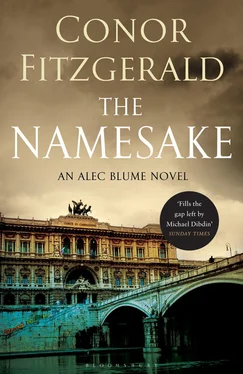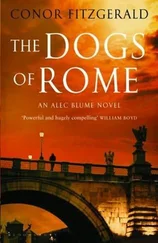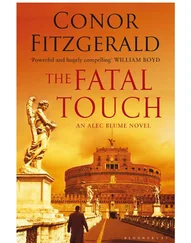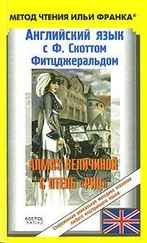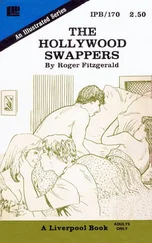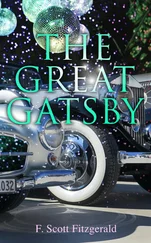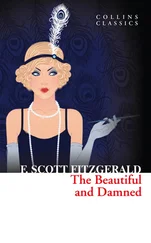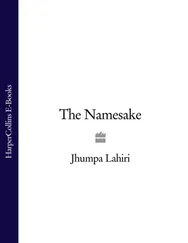Conor Fitzgerald - The Namesake
Здесь есть возможность читать онлайн «Conor Fitzgerald - The Namesake» весь текст электронной книги совершенно бесплатно (целиком полную версию без сокращений). В некоторых случаях можно слушать аудио, скачать через торрент в формате fb2 и присутствует краткое содержание. Жанр: Полицейский детектив, на английском языке. Описание произведения, (предисловие) а так же отзывы посетителей доступны на портале библиотеки ЛибКат.
- Название:The Namesake
- Автор:
- Жанр:
- Год:неизвестен
- ISBN:нет данных
- Рейтинг книги:3 / 5. Голосов: 1
-
Избранное:Добавить в избранное
- Отзывы:
-
Ваша оценка:
- 60
- 1
- 2
- 3
- 4
- 5
The Namesake: краткое содержание, описание и аннотация
Предлагаем к чтению аннотацию, описание, краткое содержание или предисловие (зависит от того, что написал сам автор книги «The Namesake»). Если вы не нашли необходимую информацию о книге — напишите в комментариях, мы постараемся отыскать её.
The Namesake — читать онлайн бесплатно полную книгу (весь текст) целиком
Ниже представлен текст книги, разбитый по страницам. Система сохранения места последней прочитанной страницы, позволяет с удобством читать онлайн бесплатно книгу «The Namesake», без необходимости каждый раз заново искать на чём Вы остановились. Поставьте закладку, и сможете в любой момент перейти на страницу, на которой закончили чтение.
Интервал:
Закладка:
‘Girlfriend. Ah. That’s good. Have you been with her for long?’
‘A while,’ said Blume. ‘She’s a colleague.’
‘Super. So you see each other all the time.’ Konrad stepped out and closed the camper door, then locked it.
‘Yes. Being always in contact with her is…’ His phone rang again.
‘You can answer that,’ said Hoffmann. Blume glanced at it, saw Caterina’s name, and cut it off. ‘It’s stopped. Look, can I just check something in my case before we go?’
‘Inside the camper?’ Hoffmann’s blue eyes widened in exaggerated surprise.
Reluctantly, he unlocked the door and Blume stepped inside. He noted two matching soft leather suitcases nestling against each other in the back, and beside them, his own oversized and antiquated cream one. The interior was furnished with plastic wood and the metal edges with fake wood-grain siding, which suddenly disinterred a buried memory of a Buick station wagon someone’s mother used to drive. He remembered sitting in the back, his bare legs stuck to the vinyl bench seats, as the car, an enormous thing, glided down the freeway like a fat boat on a muddy river. In Europe, you could always feel the rumble of the wheels. You were always aware of the surface of the road.
Stuck to the fake wood-board above the curtain that separated the living area from the front cab was a photo of a young woman. To judge from the pale-blue tint that had washed away most of the bright colours, it was at least fifteen years old. The girl was blonde, smiling, and possibly pretty, but the flat colour and absence of shadow made it hard to form a clear idea of what she was like. She was standing in front of a camper van, which, Blume guessed, was the one he was standing in.
He felt Hoffmann’s eyes on his back and realized he had been under observation. What with the careful positioning of the photo in the dead centre of the small living space, above a stiff divider curtain that reminded him of a tabernacle. Blume stretched out his hand as if to touch it.
‘Don’t touch that!’
He turned around, making a show of being surprised to find Hoffmann there. ‘Touch what? Oh, you mean the photo. Who is she?’
‘An old friend.’
‘You mean a young friend,’ said Blume. ‘But I guess you were just as young when this was taken.’
Hoffmann tapped a clear plastic watch on his wrist. ‘Thanks to you we will be driving in the hottest hours of the day.’
‘It’s only two and a half hours to Naples, maybe a bit more in this thing. And from Naples to Positano another hour.’
Blume sat down in the passenger seat beside Hoffmann and, in a second effort to come across as friendly and helpful, began to explain the best way to get from Via Orvieto to the A1. ‘Basically, back the way we’ve just come. Straight on till Cinecitta, then we need to go..’
Hoffmann pulled out a SatNav from the glove compartment beside him and stuck it to a suction mount on the windscreen.
Blume folded his arms and lapsed into offended silence.
As they left the city limits Hoffmann accelerated and the camper van responded with a soft lurching movement as if its suspension was made from marshmallows. It was showing an alarming tendency to yaw as well as pitch and roll as Konrad, like any northern European driver dealing with Italians, found his efforts to set an example of careful driving being undermined by his own paroxysms of rage, resulting in much braking and accelerating.
‘Take it easy, Hoffmann.’
‘My name is Konrad.’
‘Konrad, OK.’
‘What about you?’
‘You can call me Alec, if you feel you have to.’
‘OK, Alec. Why have you been assigned to ruin my holiday?’
Blume considered his response.
‘I am here because I’ve been told to keep an eye on you, and find out what you’re up to. So maybe if you just tell me, I can get out, get a taxi back, and return in triumph with a complete report.’
Konrad pointed at a fast-moving swarm of vehicles ahead. ‘In Germany, we would never have vehicles come on the road before vehicles go off.’
‘I have no idea what you are talking about,’ said Blume.
‘This is what I mean.’ Konrad pointed out the window. ‘Those cars are coming on to the road from the right and must come into the flow of the traffic. That is the entrance, no? And here, fifty metres farther on, we have the exit. So all the cars that want to go off must cross at high speed in front of all the cars that are coming on. This is very bad engineering.’
‘Our apologies,’ said Blume.
Ten minutes later, Konrad pointed to the side of the road. ‘Do you notice that?’
Blume checked. The road signs seemed normal, the hilly land behind the guardrail was so dry it looked like a collection of sand dunes. One sign told him the next Agip service area was fifteen kilometres. No cars were coming on or going off the highway in an unGerman manner. ‘Notice what?’
‘Evidently you don’t.’
‘Is this some sort of German version of I-spy?’
‘ Ich seh’ etwas, was du nicht siehst. Yes.’
‘Konrad, I have a headache and a loaded gun. Please tell me what you are talking about.’
‘I am talking about the rubbish. It is constant in Italy. There has been an unbroken line of rubbish along the road from your house to here. I was just wondering if after some time you stop noticing.’
‘Sometimes I notice,’ said Blume.
‘Italy is like Africa in this respect. Have you ever been to Africa?’
‘Does Morocco count?’ said Blume.
‘Technically yes, but not Arab Africa. Below. I was in Conakry for a week. They have the same problem as you. Plastic refuse everywhere. It’s a sign of a failed state.’
‘It gets tidier as you move north in Italy,’ said Blume. ‘By the time you get to Germany, everything is perfect.’
‘Have you read Jeremy Bentham?’
‘Can’t say I have,’ said Blume.
‘He founded utilitarianism — but he copied Kant, of course. As a utilitarian, I say there is an argument to be made for inflicting the death penalty on someone who throws rubbish on the street or defaces a public building.’
Blume was trying to read his companion’s face. Right now, Konrad’s mouth was showing an excess of gum, which possibly meant he was smiling.
But as Blume began forming a complicit grin, Konrad closed his mouth into a tight line and straightened his face. ‘It is a serious point. Take a landscape that has been ruined as completely as this. We can calculate it on the felific index. First, you must add up all the distress of the hundreds of thousands of people who pass through it, the sense of disgust and depression, as well as the anger, frustration and what I must imagine is self-hatred and justifiable sense of inferiority among many Italians. If you total the negative emotions, and keep in mind that these are feelings people experience over and over, every day, as they drive or walk by all these ruined sites, then you can say that the sum of human harm done must exceed the harm done by a single murder, or even multiple murders.’
‘Throwing an ice-cream wrapper equals mass murder… You’re not Catholic, are you?’
‘I am atheist,’ said Konrad.
For the next forty minutes they continued in silence. The road was clear and they were making good progress.
Eventually Konrad said, ‘Do you like music?’
‘That definitely depends,’ said Blume warily. He had heard German death metal, Bavarian brass bands and the alienated electronic squawks of experimental stuff from Berlin. He looked at the flaking silver buttons on the car stereo.
Konrad followed his glance. ‘I was not saying I would play music, I just wanted to know if you liked it.’
‘Yes, I do,’ said Blume.
Читать дальшеИнтервал:
Закладка:
Похожие книги на «The Namesake»
Представляем Вашему вниманию похожие книги на «The Namesake» списком для выбора. Мы отобрали схожую по названию и смыслу литературу в надежде предоставить читателям больше вариантов отыскать новые, интересные, ещё непрочитанные произведения.
Обсуждение, отзывы о книге «The Namesake» и просто собственные мнения читателей. Оставьте ваши комментарии, напишите, что Вы думаете о произведении, его смысле или главных героях. Укажите что конкретно понравилось, а что нет, и почему Вы так считаете.
